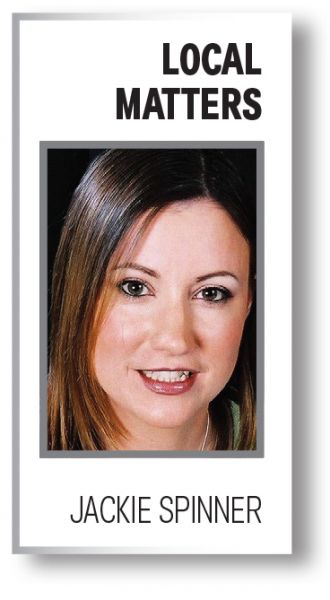It’s up to us to figure out how to report fairly and inclusively
Jackie Spinner
Apr 1, 2021


Here we are, yet again.
We just can’t seem to get it right when reporting on race.
On March 18, a 21-year-old white man was arrested and charged with murder after allegedly going on a shooting rampage at three Atlanta-area businesses that left eight people dead, six of whom were Asian women.
Although the suspect has not been officially charged with a hate crime, the shootings are part of a rise in attacks on Asians in America.
In writing those last two paragraphs, I followed the guidance of the Asian American Journalists Association. I listed the race of the suspect because I noted the race of the victims. I avoided using the coded term “massage parlor” because of the way Asian women, in particular, have been hypersexualized. I also put the shootings into context of the larger problem that is occurring right now in many communities.
Across America, attacks against Asians and Asian Americans are on the rise, according to the national coalition, Stop AAPI Hate. (AAPI stands for Asian American and Pacific Islanders.) Already in 2021, there have been more than 500 reports of hate-motivated attacks. The Pew Research Center found that about three-in-10 Asian adults (31%) say they have been subject to slurs or jokes because of their race or ethnicity since the outbreak began, compared with 21% of Black adults, 15% of Hispanic adults and 8% of white adults.
When our newsrooms don’t reflect the diversity of the communities we cover, and they don’t, it’s up to us to go out of our way to figure out how to report fairly and inclusively, seeking out diverse sources and looking for guidance from journalism organizations like AAJA, the National Association of Hispanic Journalists or Journalism and Women Symposium.
Much of the reporting from Atlanta, particularly at first, seemed hesitant to make the connection between the victims and their race. Whether these shootings officially end up being a hate crime or not, the fact is that a white man targeted Asian-owned business, and we can report that. We can report that the victims were almost all Asian Americans. We can report that there has been a rise in attacks on Asians and Asian Americans, notably since the pandemic began.
Instead, news outlets seemed to give deference to the shooter who allegedly told police that he targeted the businesses because of a “sex addiction.”
News outlets jumped on that narrative because it reinforced their own stereotypes of Asian-owned “massage parlors.” Many did so without even knowing that it was wrong. That’s the problem with not having diversity in our newsrooms. There is no one to point out an alternative narrative to the predominant, privileged one that exists.
Although small community newspapers might not have reported on the breaking news story to the extent that major publications or outlets did, that doesn’t mean they can’t use this moment for reflection about what’s missing from their own coverage. That doesn’t mean we can’t all figure out how to be better.
The first step is to get sourced. Who are the Asian Americans in your community, and have they experienced an increase in hate? I’m not talking about running out to get reaction from Asian Americans about the attacks in Atlanta. I’m talking about looking at our communities and thinking about who lives there and what challenges they face before and after the shootings, which could be thousands of miles away.
I’m talking about asking our school boards how they teach about Asian American history. I’m talking about asking our elected officials what they plan to do to address hate crimes in our own communities, whether the hate is directed at Asian Americans or Black residents or Jewish residents. I’m talking about inviting conversations about race and difference and better monitoring our comment sections and social media accounts.
If you are feeling weary about the additional layers required in thinking about how we cover these kinds of stories, imagine the fatigue of our readers who have to watch us get it wrong time and again. Imagine the conversations the Asian American parents in our communities must have with their children when we report inaccurately or when we perpetuate stereotypes.
Sure, some of our readers are going to roll their eyes or push back at what they see as attempts to be “politically correct.” Maybe some in our newsroom agree.
It doesn’t matter. The time has long passed for us to step up.
Jackie Spinner is the editor of Gateway Journalism Review (gatewayjr.org) and an associate professor at Columbia College Chicago. Send story tips to jspinner@colum.edu.










